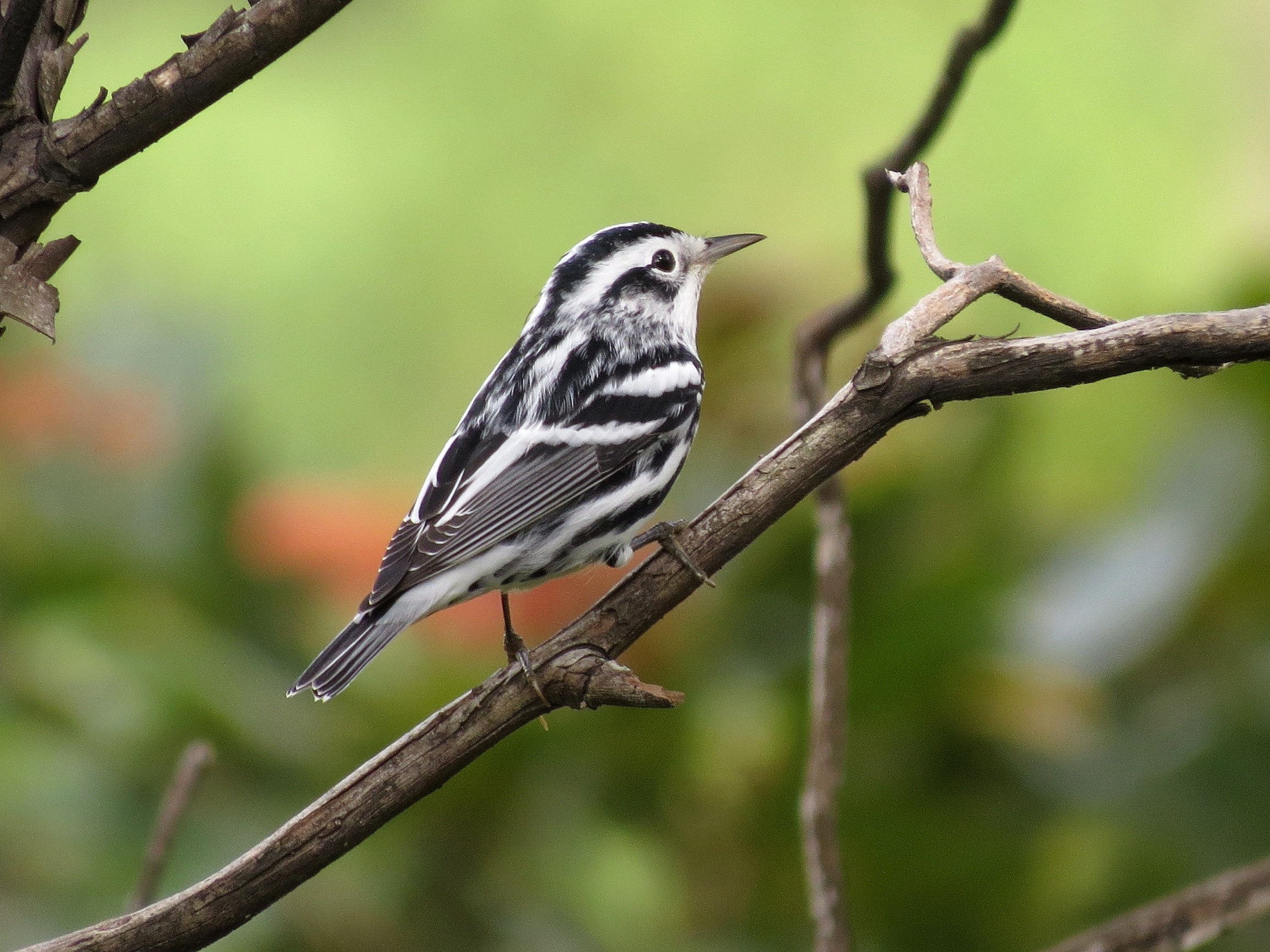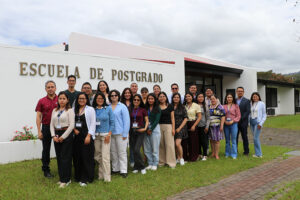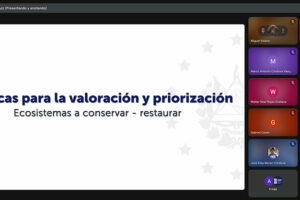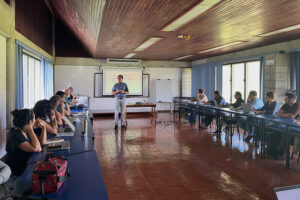The Secret to Better Coffee? The Birds and the Bees

- Study calculates winged helpers’ effects on coffee—while pioneering a better way to measure nature’s ‘unpaid labor’.
April 4, 2022. A groundbreaking new study finds that coffee beans are bigger and more plentiful when birds and bees team up to protect and pollinate coffee plants.
Without these winged helpers, some traveling thousands of miles, coffee farmers would see a 25% drop in crop yields, a loss of roughly $1,066 per hectare of coffee.
That’s important for the $26 billion coffee industry—including consumers, farmers, and corporations who depend on nature’s unpaid labor for their morning buzz—but the research has even broader implications.
The forthcoming study in the Proceedings of the National Academy of Sciences is the first to show, using real-world experiments at 30 coffee farms, that the contributions of nature—in this case, bee pollination and pest control by birds—are larger combined than their individual contributions.
“Until now, researchers have typically calculated the benefits of nature separately, and then simply added them up,” says lead author Alejandra Martínez-Salinas of the Tropical Agricultural Research and Higher Education Center (CATIE). “But nature is an interacting system, full of important synergies and trade-offs. We show the ecological and economic importance of these interactions, in one of the first experiments at realistic scales in actual farms.”
“These results suggest that past assessments of individual ecological services—including major global efforts like IPBES—may actually underestimate the benefits biodiversity provides to agriculture and human wellbeing,” says Taylor Ricketts of the University of Vermont’s Gund Institute for Environment. “These positive interactions mean ecosystem services are more valuable together than separately.”
For the experiment, researchers from Latin America and the U.S. manipulated coffee plants across 30 farms, excluding birds and bees with a combination of large nets and small lace bags. They tested for four key scenarios: bird activity alone (pest control), bee activity alone (pollination), no bird and bee activity at all, and finally, a natural environment, where bees and birds were free to pollinate and eat insects like the coffee berry borer, one of the most damaging pests affecting coffee production worldwide.
The combined positive effects of birds and bees on fruit set, fruit weight, and fruit uniformity—key factors in quality and price—were greater than their individual effects, the study shows. Without birds and bees, the average yield declined nearly 25%, valued at roughly $1,066 per hectare.
“One important reason we measure these contributions is to help protect and conserve the many species that we depend on, and sometimes take for granted,” says Natalia Aristizábal, a PhD candidate at UVM’s Gund Institute for Environment and Rubenstein School of Environment and Natural Resources. “Birds, bees, and millions of other species support our lives and livelihoods, but face threats like habitat destruction and climate change.”
One of the most surprising aspects of the study was that many birds providing pest control to coffee plants in Costa Rica had migrated thousands of miles from Canada and the U.S., including Vermont, where the UVM team is based. The team is also studying how changing farm landscapes impact birds’ and bees’ ability to deliver benefits to coffee production. They are supported by the U.S. Fish and Wildlife Service through the Neotropical Migratory Bird Conservation Act.
In addition to Martínez-Salinas (Nicaragua), Ricketts (USA), Aristizábal (Colombia), the international research team from CATIE included Adina Chain-Guadarrama (México), Sergio Vilchez Mendoza (Nicaragua), and Rolando Cerda (Bolivia). For the full scientific paper, you can get access
If you wish to have access to the complete article, you can request it through the official PNAS site here.
More information:
Alejandra Martínez-Salinas
Leader
Forests and Biodiversity in Productive Landscapes Unit
amartinez@catie.ac.cr



